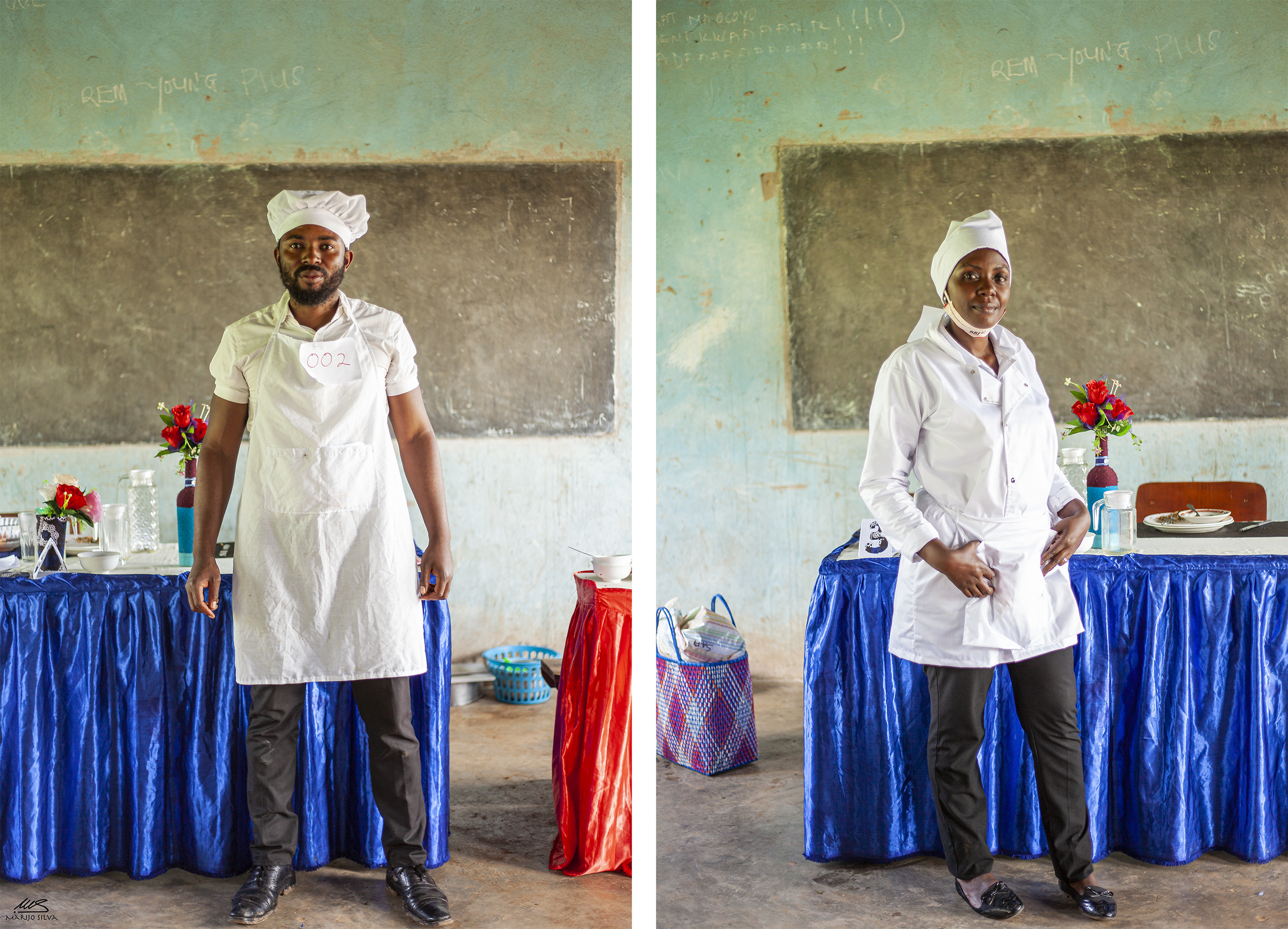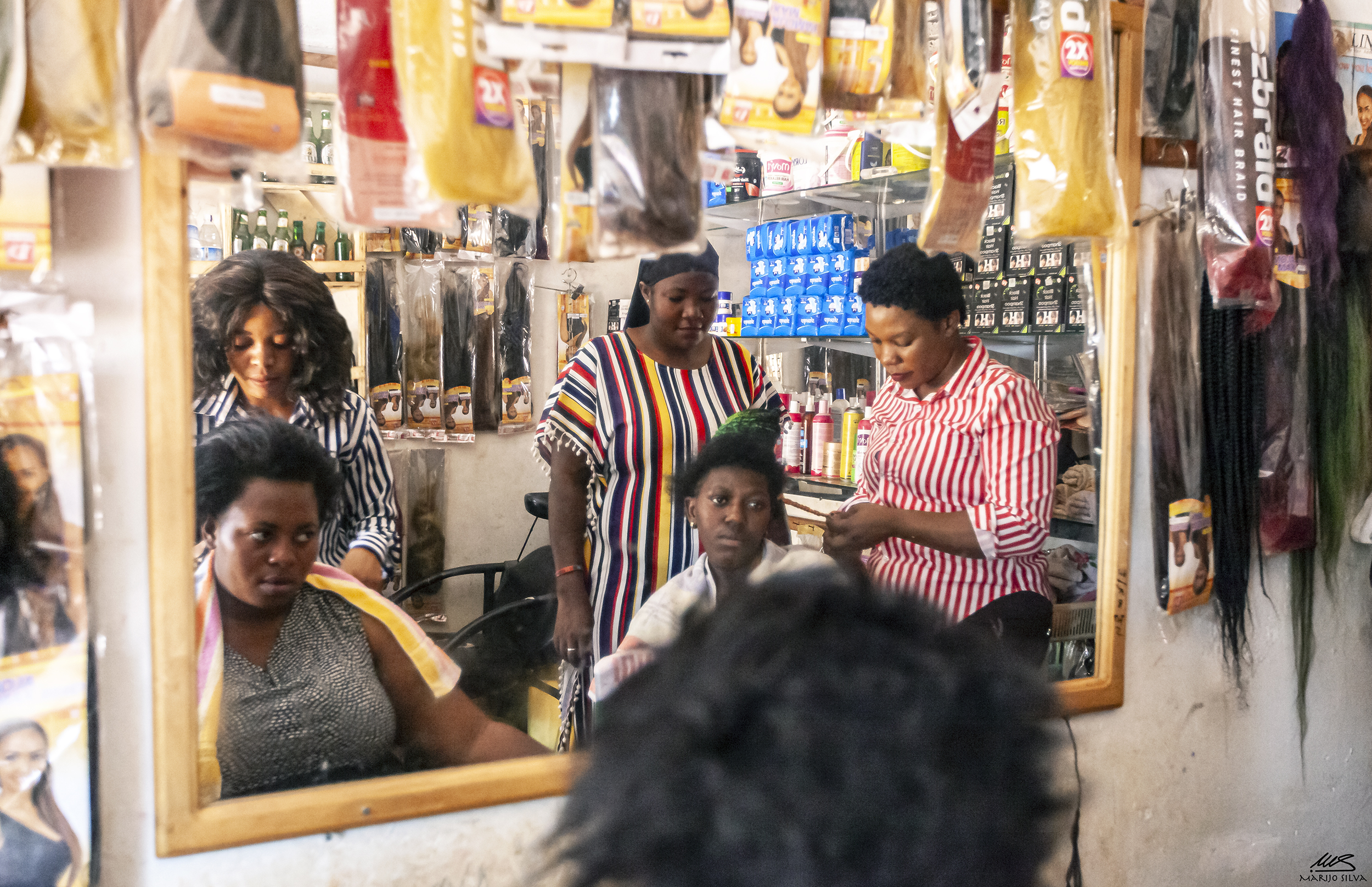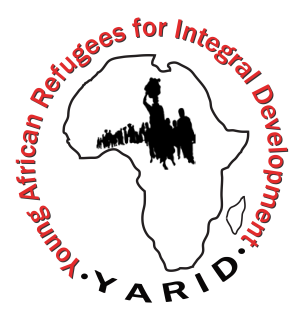Improving Labor Market Opportunities for Refugees in Uganda
Read more about the study in this article and this photo story.
To understand how this study fits within the broader evidence base on displacement, see it referenced in Stefano Caris and Kate Orkin's VoxDev Literature Review, "Barriers to Search and Hiring in Urban Labour Markets" and in Sandra Rozo’s VoxDev Literature Review on Refugees and Other Forcibly Displaced Populations.
Abstract
Refugees and asylum seekers often struggle to find jobs in their host countries, even when they have unrestricted right to work. Firms may be reluctant to hire a refugee due to a possible belief that a refugee has lower productivity or is more costly to screen compared to a local worker, and language barriers and other information frictions may affect refugees’ job search behavior and attaining a job. In Uganda, researchers evaluated the impact of a short-term internship and skills certifications, finding that the program strengthened business owners’ support for refugee labor market integration, improved their perceptions of refugee skills, and doubled the firms’ hiring of refugees up to two years later. This effect was particularly strong when refugees and employers who held positive attitudes prior to the program were matched, suggesting the importance of either matching to preexisting attitudes or holding preparatory training before implementation. A concurrent study by the researchers also suggests that matching local workers and refugee workers improved social cohesion, providing further evidence that intergroup contact can reduce discriminatory behaviors.
Policy Issue

More than 26 million people globally have been displaced from their homelands as a result of war and ethnic, tribal, and religious violence, and into new countries with unfamiliar economic and social landscapes.1 Approximately 86 percent of refugees migrate to developing countries,2 most often to neighboring countries. Host countries often have limited resources to accommodate a population influx, which can strain economic integration efforts in turn. As a result, refugee job-seekers are often forced into navigating employment and other opportunities in their new home without assistance. Consequently, they have a higher likelihood of unemployment and poverty than locals. Refugees may also contend with unwelcome attitudes and discrimination from companies, the local population, and government policies that discourage hiring refugees, which can further compound the toll from the economic challenges they face.
Removing labor market participation barriers is instrumental in generating greater economic and social opportunities for refugees. This project builds on previous research, buoyed by the UNHCR and OECD’s support of such efforts to probe the impacts and mechanisms behind economically integrating refugees into local labor markets. This study is the first to examine the effect of correcting information frictions that prevent the private sector from employing refugees.
Context of the Evaluation

More than 1.5 million refugees call Uganda their temporary or permanent home. Nearly 90 percent of displaced people come from the neighboring countries of the Democratic Republic of Congo and South Sudan. By Ugandan law, refugees are granted unlimited freedom of movement and the right to work; this includes an exemption from a work permit requirement. For this reason, many refugees settle in Kampala and other urban centers where there is increased access to employment opportunities stemming from the diverse array of sectors and markets present. However, young adult refugee job-seekers, including those with high levels of education, often have difficulty finding employment, resulting in the highest rates of unemployment. Refugees with secondary education have a 43 percent unemployment rate–nearly four times the unemployment rate for locals–and those with some college education have a 35 percent unemployment rate–double the local unemployment rate.3
Details of the Intervention

Researchers developed an intervention in Kampala with the Young African Refugees for Integral Development (YARID) and Bondeko Refugee Livelihoods Centre to randomly evaluate the impact of a one-week internship and skills certifications on firms’ beliefs and willingness to hire refugee workers.
The researchers matched firms active in various manufacturing and service sectors with a refugee job seeker in those sectors that had a certificate from a practical skills test. A total of 535 firms participated in the intervention, with 325 firms randomly selected to host a one-week internship with one refugee worker while 210 were not matched with a refugee worker.
Researchers implemented a survey one month after the matching took place and eight months after the intervention to assess its impact on firms interviewing or hiring at least one refugee and on changing firms’ and locals’ attitudes towards refugees’ participation in the labor market.
In a connected module leveraging this group, the researchers also matched 377 refugee workers and 273 local workers to work for the same company and assigned each pair to one of four groups: a comparison group or one of three “work contact” activities: a one-week internship in a local firm (“direct” contact), watching a short documentary on refugee-local collaboration (“indirect” contact), or both. Researchers then measured social cohesion using a combination of explicit and implicit bias, attitudes, and behaviors.
Results and Policy Lessons
The following results are preliminary and subject to change.
The internship program had strong, lasting impacts on refugee employment. In the two years following the internship, firms doubled the number of refugees hired and were more likely to report refugee workers that were still employed, suggesting that durable employment relationships were enabled by this exposure. Furthermore, working with refugee interns improved employer perceptions of refugees (from 37.5 percent to 41 percent), as well as support for integrating refugee job seekers into the labor market. This was measured through firms’ significantly increased willingness to donate to a non-profit for refugee skills training and employment assistance and likelihood of having connections with non-profits that can help them find refugee workers. Firms who received interns were also one-third more likely to believe that Uganda’s cultural life is enriched by refugees, up from 40 percent.
Importantly, the strongest impacts were seen between refugees and employers who had positive attitudes prior to the program, enabling firms to especially improve their perceptions of refugee skills. On the other hand, matches with negative attitudes decreased firms’ willingness to hire a refugee by 39 percent in the short term. To mitigate the effect of negative attitudes, researchers suggest preparatory training before the internship or matching employers and refugees based on preexisting attitudes. The researchers also point out that accounting for credit and transportation constraints is key to promoting full participation in the internship.
This program suggests a solution to Ugandan firms’ misperceptions that refugee workers are unskilled and that the cost of training them is too high. At a cost of USD 85.50 per job created, this type of intervention is significantly cheaper than other, similar interventions. Finally, researchers point out that while the program did not significantly affect the hiring of new Ugandan workers, the program also did not alter the size of the firm, suggesting that firms may have laid off pre-existing Ugandan or foreign employees to make room for refugees.
Social Cohesion between Refugee and Local Workers
Preliminary findings suggest that social cohesion improved for both refugee workers and local Ugandan workers following intergroup contact (both direct and indirect contact). Explicit bias decreased for all workers, although implicit bias slightly increased for local workers. The evidence suggests that this may have been driven by the fear of increased job competition, since local workers realize after work contact that refugee workers are more skilled than they previously believed.
Nonetheless, this outcome does not translate into discriminatory behavior. Both groups increase positive behaviors towards the opposite, though in different forms: local workers are more willing to have refugee business partners, while refugee workers are more open to future employment by Ugandan firms (a 90 percent increase relative to the comparison group). Notably, refugee workers are less willing to have any partner in a hypothetical business scenario, possibly because they learn that they can look for salaried jobs at firms instead of self-employment.
Sources
[1,2] UNHCR, “Figures at a Glance,” United Nations High Council on Refugees, accessed January 12, 2022 https://www.unhcr.org/en-us/figures-at-a-glance.html
[3] Theresa Beltramo, Jed Fix, Ibrahima Sarr, “UNHCR Uganda - Knowledge Brief: Improving employment outcomes for refugees - July 2021,” August 31, 2021, https://reliefweb.int/report/uganda/unhcr-uganda-knowledge-brief-improving-employment-outcomes-refugees-july-2021
Implementing Partners














